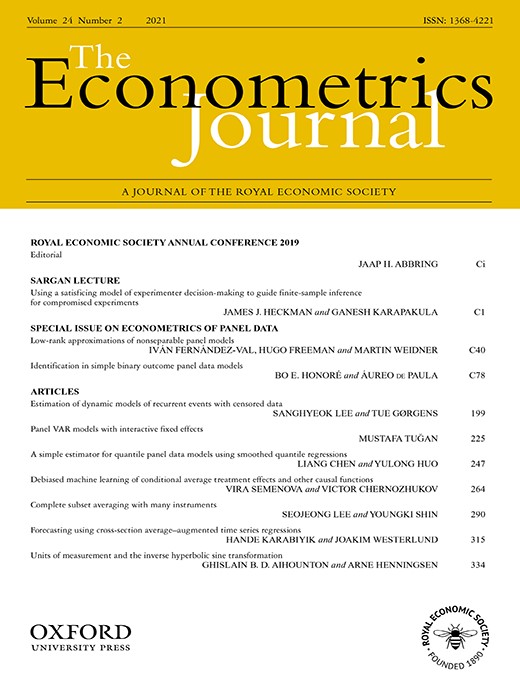-
Views
-
Cite
Cite
Seojeong Lee, Youngki Shin, Complete subset averaging with many instruments, The Econometrics Journal, Volume 24, Issue 2, May 2021, Pages 290–314, https://doi.org/10.1093/ectj/utaa033
Close - Share Icon Share
Summary
We propose a two-stage least squares (2SLS) estimator whose first stage is the equal-weighted average over a complete subset with k instruments among K available, which we call the complete subset averaging (CSA) 2SLS. The approximate mean squared error (MSE) is derived as a function of the subset size k by the Nagar (1959) expansion. The subset size is chosen by minimising the sample counterpart of the approximate MSE. We show that this method achieves asymptotic optimality among the class of estimators with different subset sizes. To deal with averaging over a growing set of irrelevant instruments, we generalise the approximate MSE to find that the optimal k is larger than otherwise. An extensive simulation experiment shows that the CSA-2SLS estimator outperforms the alternative estimators when instruments are correlated. As an empirical illustration, we estimate the logistic demand function in Berry et al. (1995) and find that the CSA-2SLS estimate is better supported by economic theory than are the alternative estimates.





